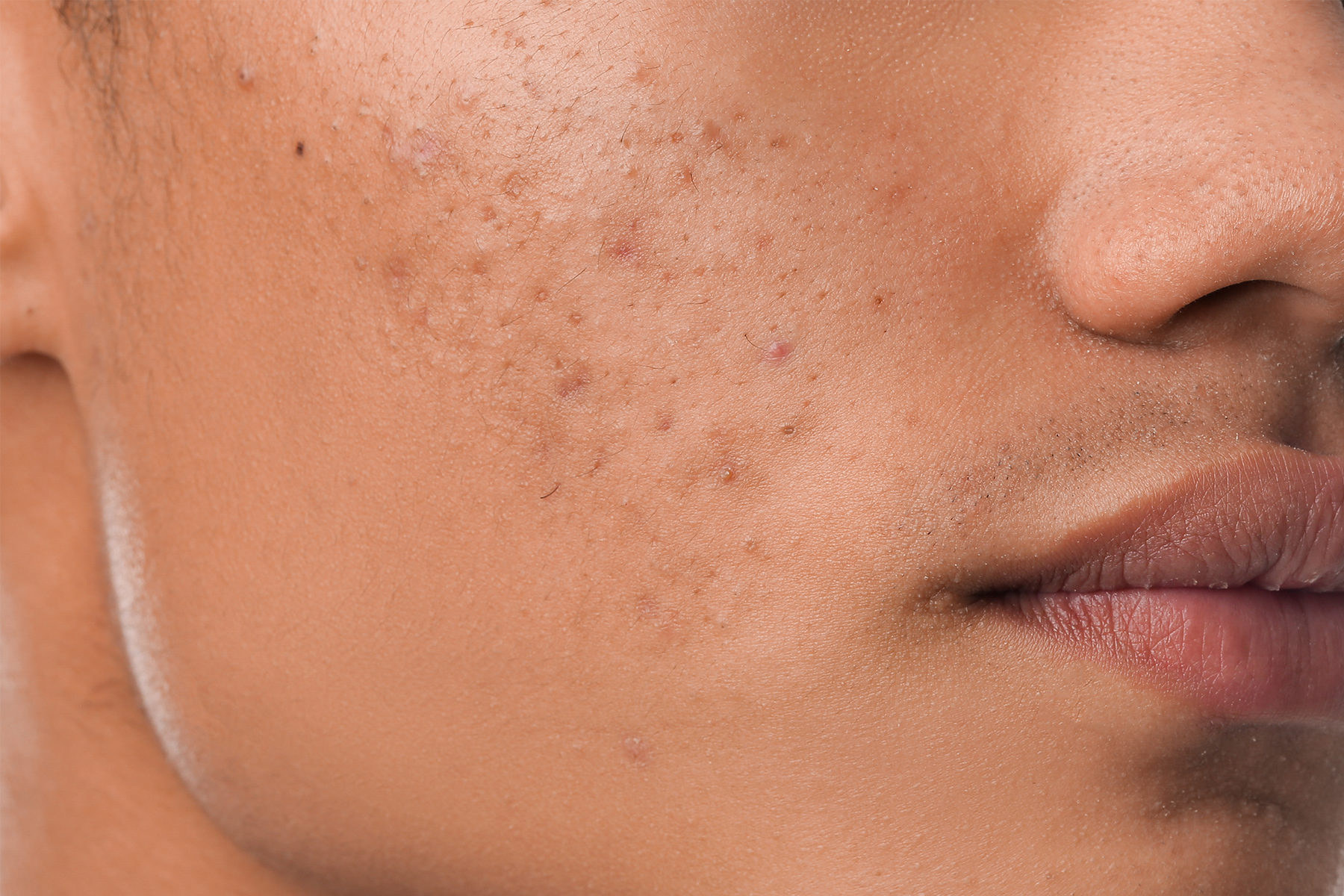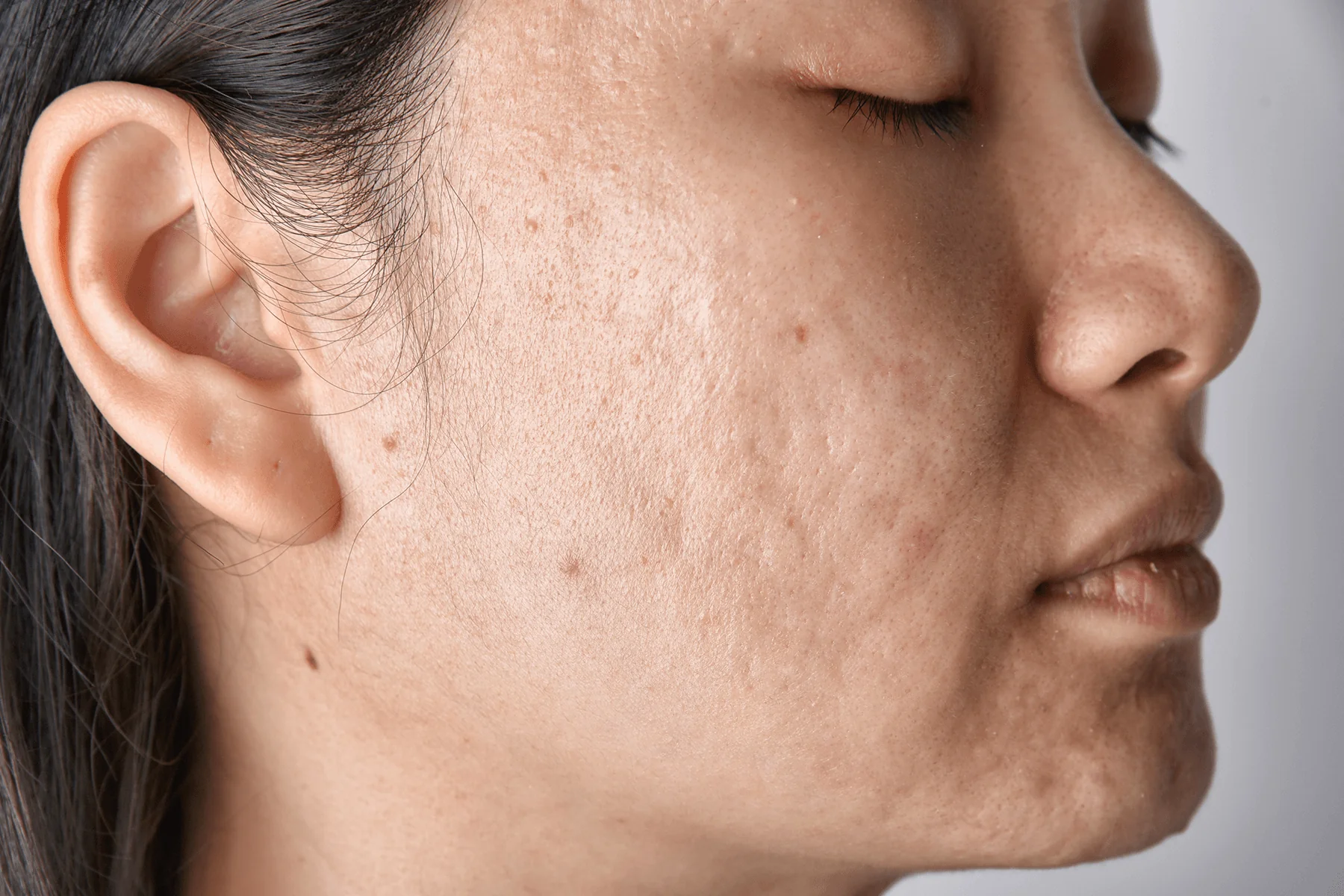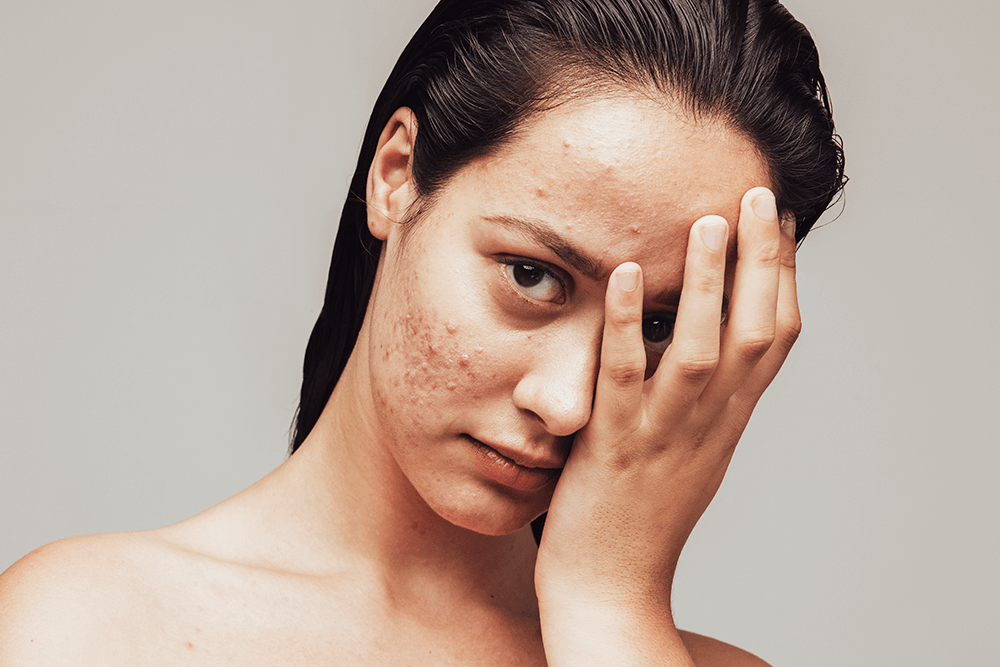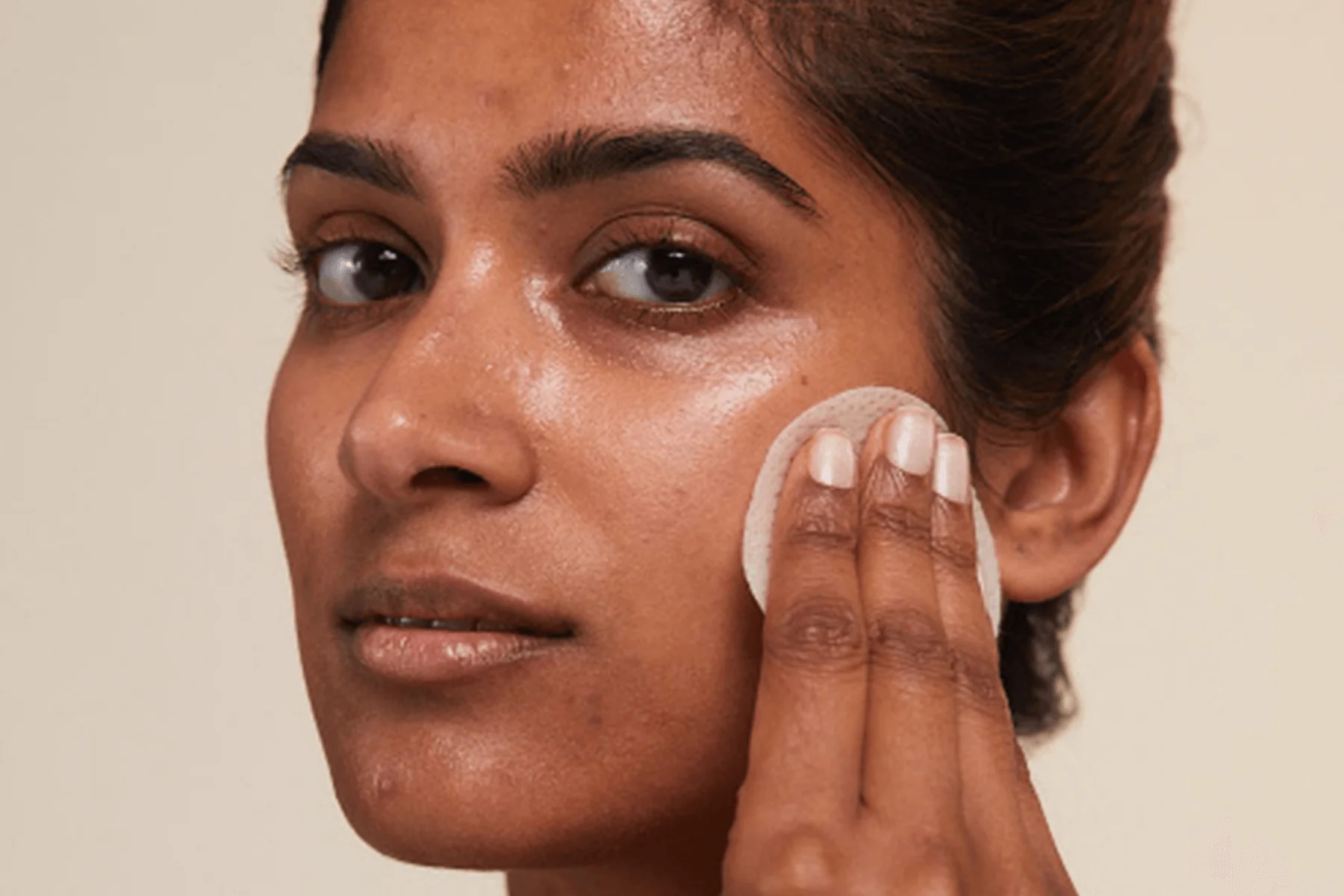The+Source
People of any age can have skin breakouts that can affect self-esteem. Your chin, cheeks, back and upper shoulders are the primary areas where acne emerges. With an effective skincare routine for acne, you can get your confidence back and present the best version of yourself. Knowing the different kinds of acne can help you choose the right treatment approach.
Whiteheads and blackheads are noninflammatory acne that does not cause pain or swelling. They occur due to dead skin and excess sebum clogging pores.
On the other hand, inflammatory acne or pimples cause redness of the skin, swelling and infection. They are of four types – papules, nodules, pustules and cysts, each needing specific skincare for acne prone skin.
Pustules are full of pus, and like papules, they happen when the walls of the skin pores break down. Nodules and cysts occur far deeper in the skin. Rosacea can occur during menopause and aggravate with triggers, such as spicy foods or alcohol.
What Causes Acne and Blemishes
The main cause for acne is a type of bacteria strain known as Propionibacterium acnes. Around 85% of Americans between the ages of 12 and 24 suffer from acne.
It is a skin condition where the sebaceous glands or pores at the bottom of your hair follicles get inflamed.
These glands produce excess oil when your skin gets triggered by stress, weather, hormonal imbalance, cosmetics, etc. Combined with dead skin cells and hair, the clogged pores get infected and swell. This waxy accumulation results in a pimple.
Best Skincare Ingredients for Acne Prone Skin
While the skincare routine for acne varies with each situation, you should choose the right products for your skin type. More importantly, the ingredients in these products are what makes them effective.
Salicylic acid
Salicylic acid is a type of beta-hydroxy acid (BHA) that is an excellent liquid exfoliant. It acts as an anti-inflammatory, reduces irritation and dissolves the oil buildup on your skin surface.
Activated charcoal
The combination of white clay and activated charcoal does wonders for acne prone skin. Charcoal helps absorb dirt and excess oil from your skin. Available primarily in masks and cleansers, it helps keep your skin supple and oil-free without over-drying.
Vitamin C
Vitamin C has been a crucial ingredient in any acne routine treatment for ages. It tightens the skin and boosts vigor into cells while healing them from UV exposure.
Glycolic acid
Harsh sunlight, pollution and dead skin cause pimple-producing pores. Skincare products with glycolic acid, an alpha-hydroxy acid (AHA), work by breaking down the dissolved sebum.
Building a Skincare Routine for Acne
Facial masks: Masks kill acne-causing bacteria and help dry the superficial acne lesions like pustules. Masks with sulfur and clay treat blemishes, dissolve impurities, and refine the skin.
Cleansers: Cleansers are effective acne-fighters that remove oily products like makeup without dehydrating the skin. They support the moisture barrier, soothe the skin and enhance elasticity.
Moisturizers: Moisturizers hydrate the skin and build collagen to prevent wrinkle formation and premature aging. They rectify fine lines, rough texture and uneven skin tone. Oil free moisturizers are recommended for oily, acne-prone skin.
Peels: Peels extract impurities from the pores and leave your skin revitalized. Nutrient and vitamin-rich daily peels protect the skin from environmental toxins and free radical damage.
Serums: Face and eye serums boost radiance in your otherwise dull skin and tired-looking eyes. They help correct the luminosity and increase new cell production.
LED devices: blue LED light destroys acne causing bacteria and red LED light reduces redness and inflammation.
Several of these products can be bought and used at home. However, if your acne issues are severe, you should consult a dermatologist for the right approach for your situation. Otherwise, instead of alleviating your problems, you may worsen them.
Easy Steps for Your Acne Skincare Routine
Daytime Skincare Routine for Acne
Use a gentle face cleanser suited for your skin type to wake up the cells every morning. It is important to use a non-stripping cleanser.
If there is inflammation in some areas, apply spot or all-over treatment for acne prone skin.
Dab a nutrient-dense serum to protect your skin against harsh elements.
Moisturize with the right products for your skin type, situation and daily needs.
Apply sun protection to shield your skin cells from UV rays.
Nighttime Skincare Routine for Acne
Dab an exfoliating cleanser to extract all impurities that may clog your pores throughout the day. Our cleansers have soothing toners built-in to cleanse and balance the skin in one step.
A nighttime routine is the perfect time to use a powerful serum. Select a serum that targets your biggest skin concern: fine lines, hyperpigmentation, dullness, etc.
Prevent water evaporation by applying a heavier moisturizer than you word for daytime use. If your skin is particularly oily, an oil-free moisturizer that still offers the deeply hydrating benefits of most other heavy nighttime moisturizers is recommended.
Improper sleep, lack of exercise and poor lifestyle choices can be significant risk factors even for people without acne prone skin. So, try to avoid greasy or spicy foods, drink a lot of water throughout the day and keep your gut healthy.
Discover Dr. Dennis Gross Skincare for All Your Skincare Needs
For more skincare tips from the experts at Dr. Dennis Gross, check out our blog’s newest content today. Shop the collection of Dr. Dennis Gross bestselling skincare backed by dermatologists.
Original published on 11/24/2021. Updated on 6/23/2023.







